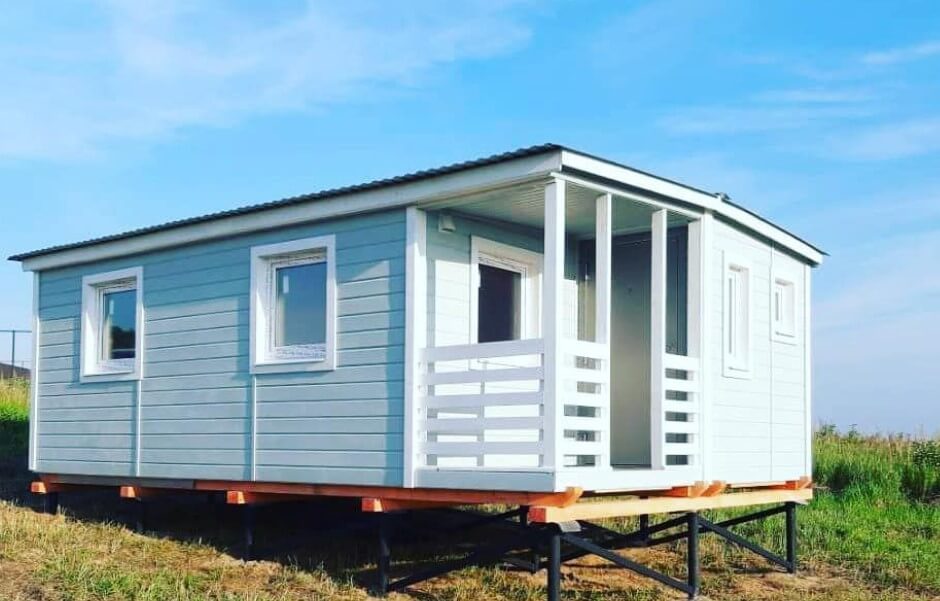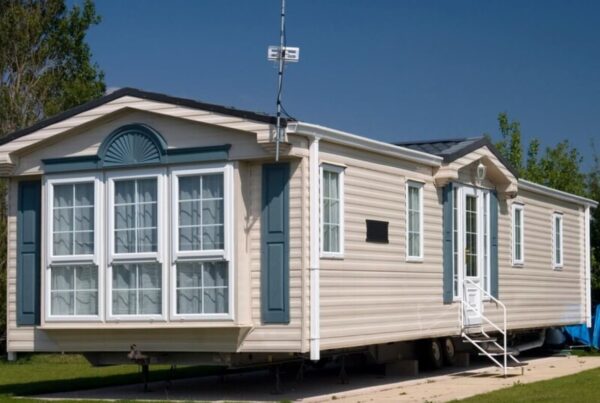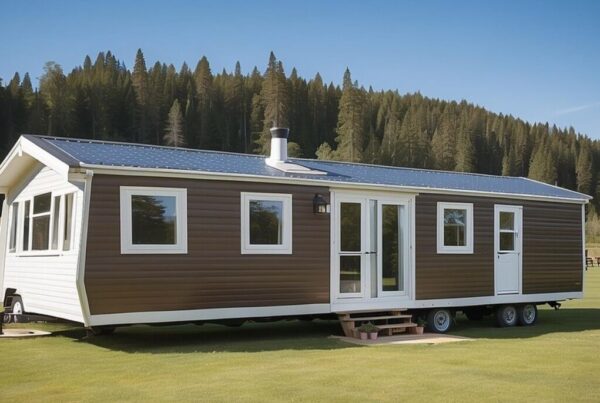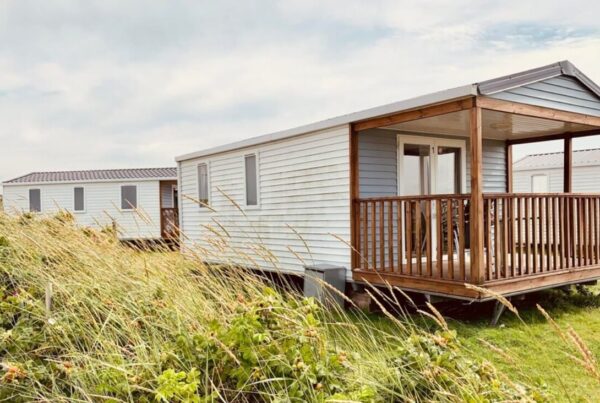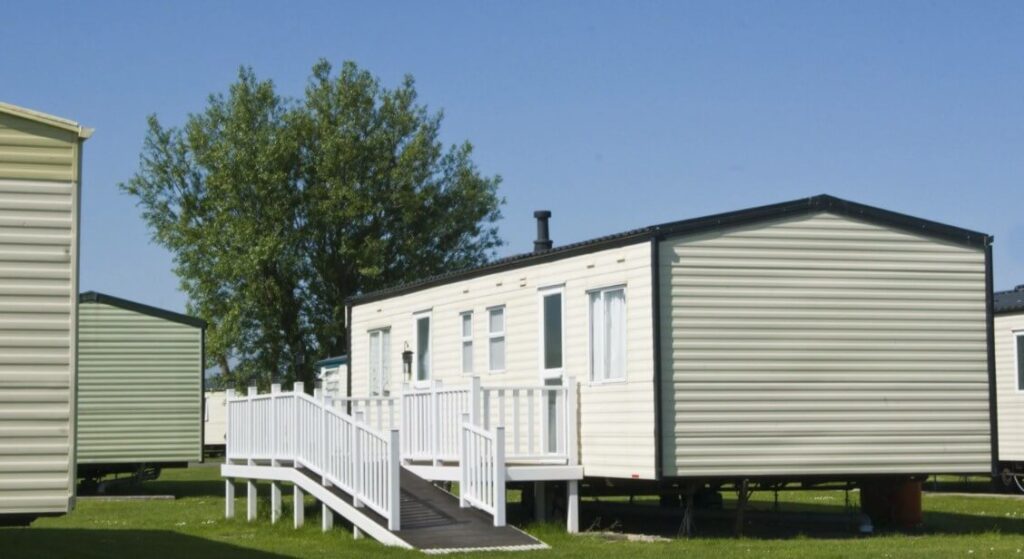
Mobile homes have quickly become a top housing option, providing affordability, flexibility, and design choices at a more manageable cost. But one key question often remains: How long do mobile homes last? This answer depends heavily upon various factors. In this post, we explain which aspects determine Mobile Home Lifespan as well as ways of prolonging it.
Let’s find out What Affects the Lifespan of Mobile Homes!
1. Quality of Construction
Construction plays an essential role in the lifespan of mobile homes. Those constructed with quality materials and skilled craftsmanship tend to last longer. Let’s investigate these elements that determine quality:
- Materials Used: When high-grade materials like treated lumber and insulated windows are utilized in building your mobile home, their durability increases considerably.
- Construction Standards: Mobile homes built post-1976 must comply with HUD Code standards that set rigorous safety and construction regulations, increasing their chances of lasting longer.
- Weather Protection: Homes that feature storm-resistant windows and reinforced frames can withstand inclement weather more effectively, increasing their lifespan over time.
If you are purchasing a mobile home, make sure it features these key amenities so you get maximum return from your investment.
If you’re considering ways to give back, find out how a Mobile Home Donation can provide housing for those in need while benefiting you with potential tax advantages
2. Conduct Regular Maintenance and Upkeep
Maintaining your mobile home is paramount for its long-term survival and regular care can have an enormous impact. It could mean the difference in terms of how long it survives!
- Roof Maintenance: One of the key components of any mobile home is its roof. Inspecting and repairing it regularly helps avoid leaks or water damage to protect its inhabitants from potential leakage issues.
- Foundation Care: Assuring your mobile home stands on a stable base is of equal importance. Skirting and leveling should be reviewed periodically to maintain structural stability and avoid the collapse of its walls or foundation.
- Plumbing and Electrical Systems: Addressing issues like leaky pipes or improper wiring early can avoid more extensive and expensive complications later on.
3. Location and Environment
Your mobile home’s environment and location also play a key role in its lifespan, for the following reasons.
- Impact of Climate: Mobile homes located in areas subject to severe weather, such as hurricanes, heavy snowfall, or high humidity may suffer more wear and tear from extreme elements than others. Therefore they must be protected against such environmental stresses.
- Site Prep: Proper site preparation can extend the life of mobile homes by decreasing moisture build-up and structural problems. A well-drained site and strong foundation reduce these chances.
Examples include adding protective measures like weather barriers and proper ventilation to reduce environmental causes of damage.
Understanding What type of foundation is best for removing a mobile home is essential for a safe and efficient removal process. Learn about your options here!
4. Renovation and Upgrade Projects
Upgrading and renovating your mobile home can extend its life, as well as improve both its appearance and durability. A few easy upgrades could add years to its existence!
- Roof Upgrades: Switching roof types – such as switching from flat roof to pitched – can prevent water accumulation and extend its life expectancy.
- Energy-Efficient Additions: Upgrading to energy-efficient HVAC systems, new double pane windows, or upgrading insulation to your mobile home will not only save you money on your utility bills but also help preserve your mobile home’s integrity.
- Interior and Exterior Refresh: Updating flooring, repainting walls, and fixing up exterior siding help to maintain your home in as perfect condition as can be while wearing it out over time.
5. Proper Installation
A poorly installed mobile home will not last nearly as long; therefore, proper setup matters greatly for its longevity and resilience. Here’s why installation matters:
- Anchoring and Leveling: Anchored and leveled mobile homes can reduce shifting or cracking issues that might otherwise damage their structure, helping protect its longevity by helping prevent unnecessary wear-and-tear damages and increasing longevity.
- Inspection and Certifications: Having your mobile home professionally installed should include an inspection of its structural stability and safety by certified installers who follow industry best practices to make certain everything runs smoothly and is stable and safe.
When moving or purchasing a mobile home, always hire an expert installer to make sure all goes according to plan.
Looking for affordable housing solutions? Learn How to get a donated mobile home and find opportunities that might fit your needs!
The Bottom Line
Mobile home lifespan depends on numerous factors, including quality of construction, maintenance costs, and proper installation. By taking proactive steps you can extend its life. Whether you own an older one or are considering purchasing one soon enough – understanding these considerations will enable you to make informed decisions for years of protection of your investment.
